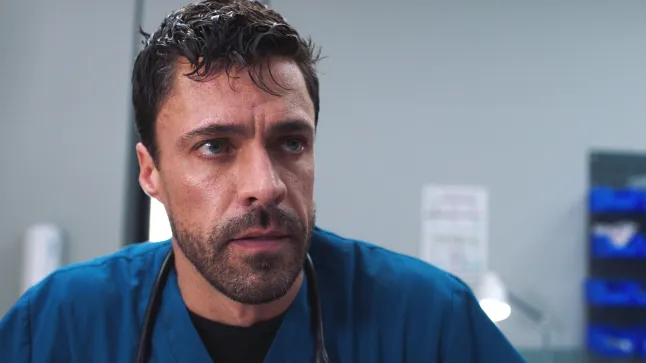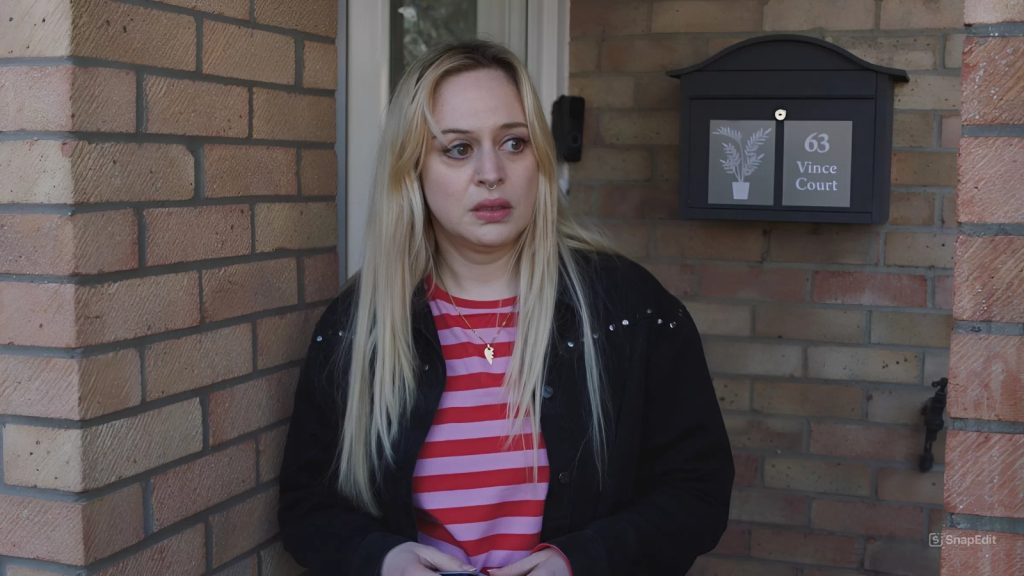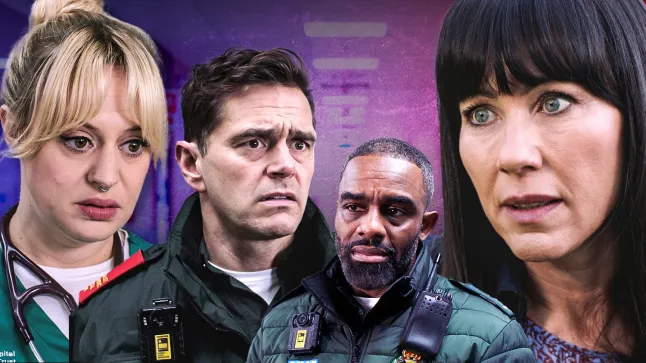“The Bomb, The Vet, and the Betrayal: A Night That Changed Everything”
The night began with hesitation.
In the dim glow of the car’s dashboard, Lexie’s voice trembled as she turned to Patrick.
“Please… let’s turn around.”
He gripped the steering wheel tighter, eyes forward, voice calm but edged with determination. “It’s just nerves. Take a deep breath. It’ll pass.”
But Lexie wasn’t soothed. Her voice carried more than nerves—it carried dread. “It’s more than that. I know I agreed to this… but I’ve changed my mind. This is wrong.”
Patrick’s jaw clenched. Wrong? Shutting down the research center that tortured animals wasn’t wrong. “Two and a half million animals die every year in agony. You have to decide, Lexie. Are you going to help them, or walk away and betray them?”
The car rolled to a halt. Silence thickened the air. The choice hung heavy.
Meanwhile, elsewhere, a gentle domestic scene unfolded. A dog wagged his tail, basking in the warmth of his owner’s affection. “You are a very good dog, aren’t you?” Helen Wilder, a respected scientist, smiled. Her home was quiet—safe. Or so it seemed.
The doorbell rang.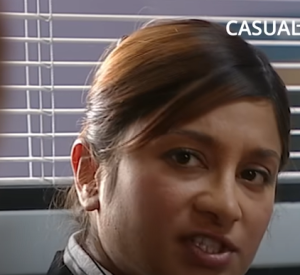
It was John Lovett, the local vet. He smiled sheepishly. “Sorry to drop round like this.”
Helen welcomed him warmly. “Don’t apologise. I’m glad to see you.”
John admitted he should have phoned, but she brushed it off. It was a pleasant surprise. He’d helped her dog recently with antibiotics, and now, standing there with an awkward grin, he confessed the real reason for his visit: “I came to ask you out to dinner. Next Saturday.”
Helen’s eyes softened. “Dinner would be lovely.”
For a fleeting moment, the world was ordinary. Simple. Human.
But the illusion shattered in an instant.
The doorbell rang again. John moved to answer it—
“John, no! Don’t—” Helen cried.
Too late. The door swung open. A deafening explosion ripped through the house. The blast threw John backward, fire and smoke tearing the evening apart. The dog yelped in terror and pain. Helen screamed his name.
The aftermath was chaos. Sirens. Smoke. Barking. And then the most devastating news of all: the dog hadn’t survived.
The street swarmed with police and paramedics. Confusion reigned. Officers held civilians back. “We can’t let you through yet—for your own safety.”
Helen, frantic, tried to push forward. “Please, let them through! He’s bleeding to death!”
Paramedics Comfort and Woody forced their way past protocol. They found John broken, burned, barely clinging to life. His pulse weak. His body mangled. His right eye destroyed, his hands ruined, his future uncertain.
Helen stayed at his side, trembling but resolute. She identified herself to the medics: “I trained as a doctor, but I don’t practice. My name is Helen Wilder.”
They worked quickly. Photos for plastics. Antibiotics. Betadine dressings. But the verdict was grim. John had lost his right eye. His other was severely damaged. His hands disfigured.
The man who had only moments ago asked her to dinner was now fighting for his life—because he had answered her door.
The police wasted no time. DS Britton and DC Hardy approached Helen. She revealed the truth: two weeks ago, she had quietly accepted the directorship of the controversial Biotech Research Centre. The facility was set to open soon, and animal rights activists had escalated from vandalism and threats to something far more violent.
“This isn’t protest anymore,” she whispered. “This is terrorism.”
And now John, the gentle vet, had been caught in the crossfire.
Meanwhile, Lexie was under interrogation. The police knew her name, her affiliations, her movements. “Thirty seconds after the explosion, you sped away so fast you crashed your car. You’re an animal rights protester. We know what you were doing there.”
Lexie protested. She hadn’t planted the bomb. She had sat in the car the whole time. But doubt gnawed at her. The man she loved—Patrick—had ignored her pleas, dragged her deeper into a nightmare, and now she was the one under suspicion.
Her loyalty wavered. Did Patrick truly care for her, or had he used her as a pawn in his crusade?
At the hospital, as John lay broken, Helen grappled with guilt. She hadn’t been the target, not directly—but she was the reason he had been there. “He treated my dog. And today… he just came to ask me to dinner.”
The irony was cruel. The vet who had healed her pet was now mutilated, blinded, burned—all because extremists believed she deserved to die.
Harry Harper, a colleague who admired her, confronted Lexie later. His words were sharp and unforgiving. “The victim of your vicious attack was the local vet. Poor chap, wrong place, wrong time. That bloody mess—was the result of your handiwork.”
Lexie looked horrified. Could it be true? Was the wrong person the one who suffered?
Her boyfriend Patrick arrived soon after. She introduced him with trembling lips. “This is my boyfriend, Patrick.”
The police closed in immediately. “Patrick Main, you are under arrest for causing an explosion likely to endanger life, and grievous bodily harm to John Lovett.”
Patrick sneered, tried to play it cool, but the handcuffs snapped shut. Betrayal cracked the air. “Witch!” he spat at Lexie, realising she hadn’t shielded him.
For Helen, the ordeal left scars deeper than she expected. The directorship she had accepted now hung over her like a curse. Should she even take the position? Would the violence ever stop?
“If you walk away,” someone told her, “then the terrorists have won.”
But Helen’s voice was quiet, weary. “I think it’s just a pity.”
Later, she sat by John’s hospital bed. Bandaged, broken, blinded, he lay silent. She thought of the dinner that never was. Of the gentle eyes that had first drawn her in.
His eyes… the very thing she had noticed about him, the first spark of attraction. Gone now, perhaps forever.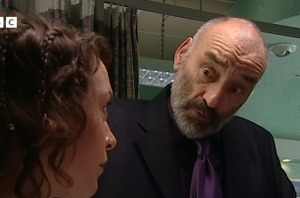
Tears welled. Her voice cracked. “Do you think he’ll still want to have dinner with me now?”
And in that moment, the cruelty of fate cut deeper than any wound.
Final Reflection
What began as a cause spiraled into destruction. What was meant to be justice became terrorism. A bomb meant for one woman destroyed the life of an innocent man.
And for those left behind—the scientist wracked with guilt, the vet broken in body, the activist torn between love and conscience—the question lingered: when violence is chosen in the name of a cause, does anyone truly win?
